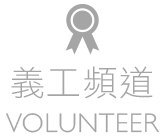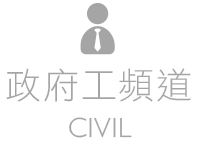Laszlo Bock
SVP, People Operations at Google
It’s Thanksgiving week in the US, so I’m reflecting on what I’m most thankful for: my family, my friends, my XBox One (a recent birthday present), the rain we’re getting in the Bay Area (finally!), and a job I love. Many of you are doing the same. The year-end is a great time for looking back, looking forward, and thanking the people around you for all they’ve done.
But it turns out that an “attitude of gratitude” is way more powerful than just saying “thanks.” Expressing gratitude makes you happier, and may even make you live longer.
Happiness research shows that when stuff happens it makes us either sadder or happier (thanks, Science!). But the effect attenuates over time. Most of us gradually revert to a baseline level of happiness or sadness. Remember the boy or girl who broke up with us in high school, and we were sure life was over and we’d never love again? Turns out most of us get over that. A person might experience a spike in happiness when they land a new job or get a new car, but as the years pass, their happiness levels out. This is called the “hedonic treadmill.”
In other words, the conventional wisdom is that some people are naturally happy and some naturally grumpy. It’s just who we are. Or is it?
Google’s People Operations Analytics team recently found that being grateful — and expressing it — can be the secret weapon to workplace happiness and to warding off the malaise that can come with routine.*
It’s no surprise that Nooglers (new Google employees) start full of optimism and excitement, but on average that ebullience trends ever-so-slightly downward over time. I often jokingly tell them to brace themselves, because they will never be happier here than on their first day. It’s all downhill from there! You’ve probably felt this in your own jobs: day one is awesome. Day one-thousand-and-one not so much.
But some Googlers stay delighted. Our latest research reveals that employees who self-identify as more grateful are largely immune to the sinking effects of tenure on satisfaction. They stay happier, longer.
It appears that feeling gratitude keep Googlers from habituating to the good stuff because they are constantly pausing to simply be grateful.
Happiness expert Shawn Achor, who spoke at our re:Work Conference last month, explained that “you are not just your genes and your environment….Happiness can be a choice. But it’s a choice that we can influence through our organizations. And when we do so, it becomes the greatest competitive advantage in the modern economy.”
Shawn’s prescription? Take two minutes each day to express your gratitude. For example:
Write down three new things for which you’re grateful, or
Spend two minutes each day praising or thanking a person you know, and
Commit to doing it for 21 days.
Shawn continues: “You get these great emails back and 21 days later you realize you have incredibly deep social connections … which are predictive of happiness in organizations as well as how long you will live.”
I couldn’t think of a better lesson for Thanksgiving and for the holiday season. Gratitude creates a virtuous cycle: the more you express it, the happier you are. We are not stuck as “sad people” or “happy people.” We have a choice.
Spending two minutes a day being consciously, deliberately, mindfully grateful is perhaps the secret to happiness and a longer life.
Source








